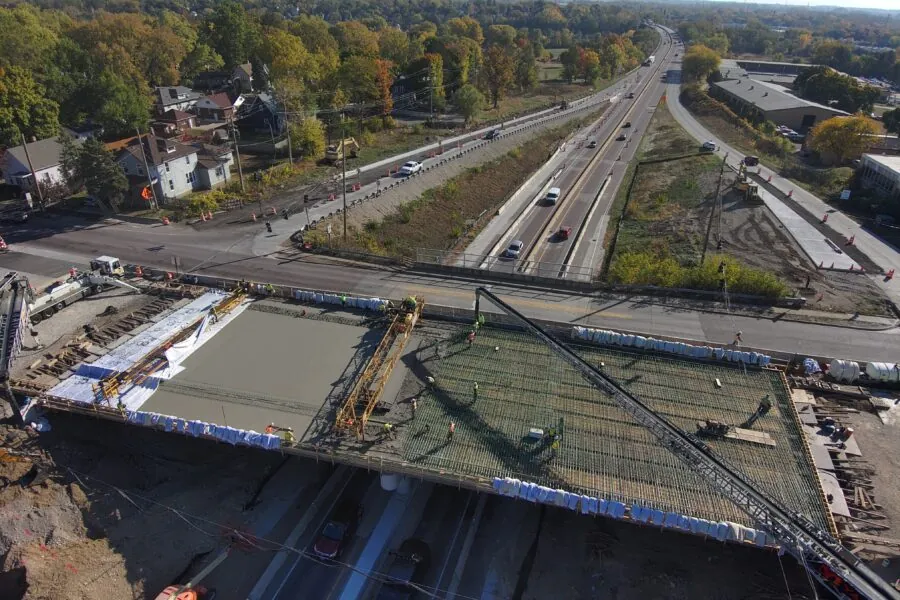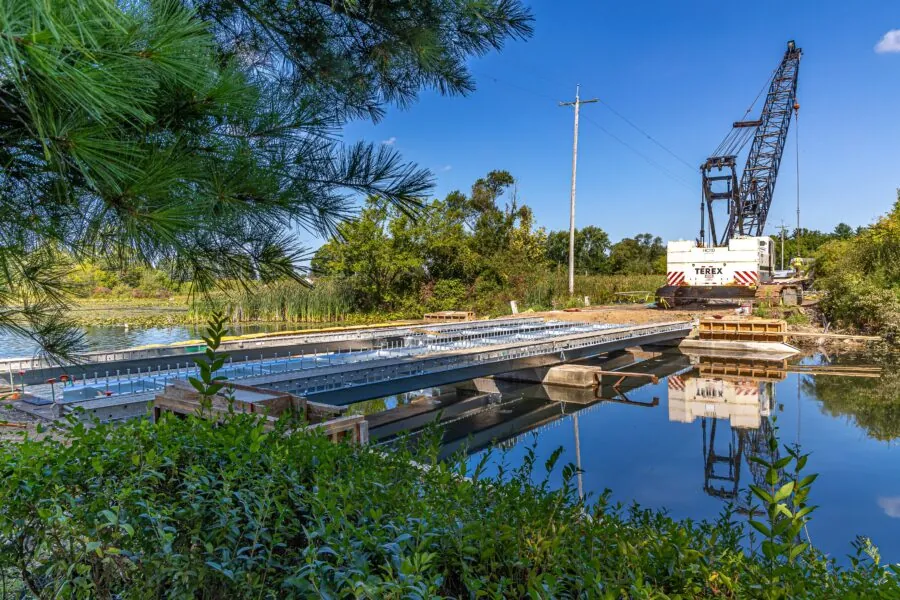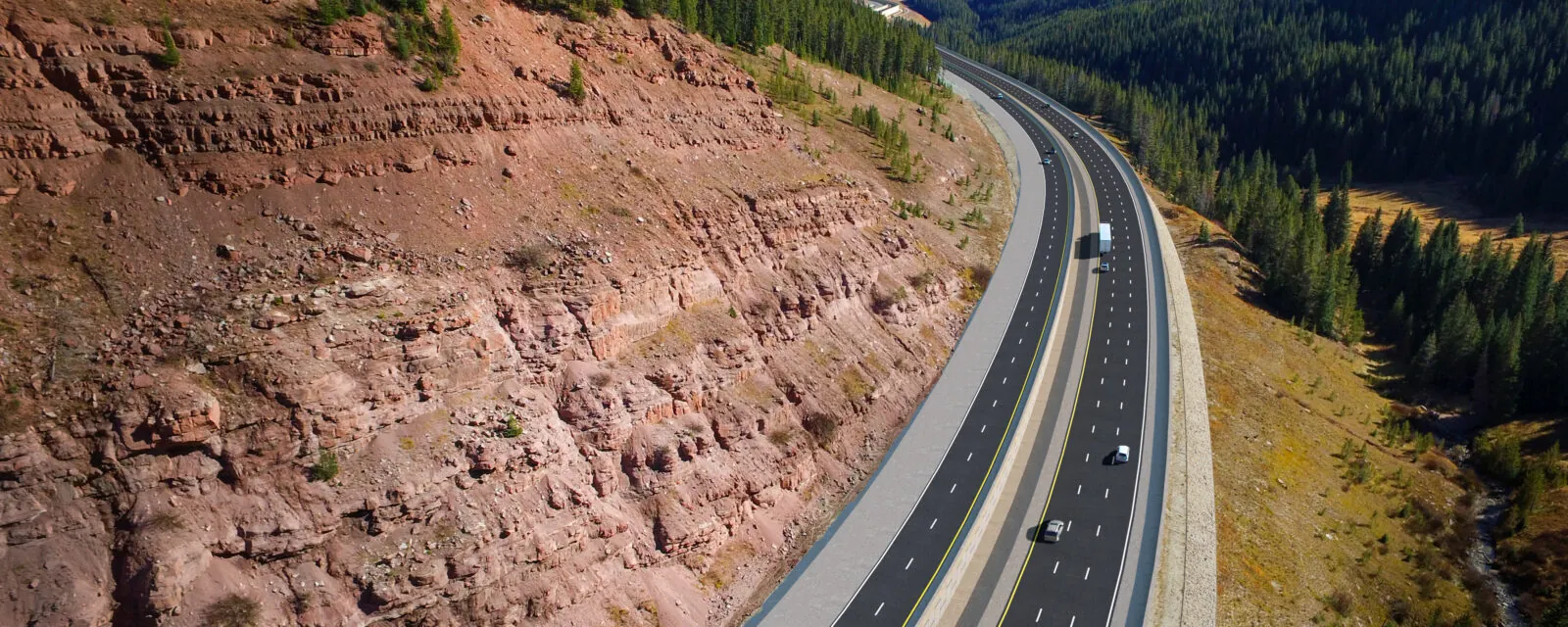
CDOT I-70 West Vail Pass Design
Project Details
Client / Owner
Colorado Department of Transportation
Focus Areas & Services
Delivery Method
CMGC
Construction Value
$325 million
West of the Mile High City of Denver, I-70’s Vail Pass reaches 10,662 feet of elevation and passes through the Gore Range of the Rocky Mountains in central Colorado. Steep grades, extreme weather, and mountainous terrain pose significant challenges in the travel and maintenance of Vail Pass, the second highest interstate in the United States. The ability of RS&H to provide design services for this challenging 10-mile, $250 million project is a testament to the quality of services we continue to provide the Colorado Department of Transportation (CDOT) in completing their most important projects.
Designing the West Vail Pass
Steep grades, severe weather, and complex terrain led to safety and mobility concerns identified in a 2017 safety study by CDOT and the Federal Highway Administration (FHWA). This 10-mile highly traveled corridor is a critical link for local and regional travel and includes over a mile of complex bridge structures. Improvements include widening five miles of I-70 from two to three lanes, improved shoulders, curve flattening, bridge walls, drainage, signing and striping, ITS, and a recreational trail. Signing improvements included variable speed limit signs and variable message signs that tie to the CDOT’s ITS system for altering speeds during inclement weather or congestion.
Incorporating the CSS decision-making process into the design
Over the years, CDOT and stakeholders have invested a tremendous amount of effort and resources toward context-sensitive solutions (CSS) and NEPA. The primary goal of this project is to address safety concerns and operational issues due to geometric conditions (steep grades and tight curves) and slow-moving semi-trucks and passenger vehicle interactions that result in inconsistent and slow travel times along the corridor. In collaboration with CDOT, stakeholders, and our subconsultant partners, RS&H is blending the design into the I-70 Mountain CSS process to develop solutions that result in a practical balance of minimizing environmental impacts while improving safety and operations. Through the CSS process, the RS&H team developed safe, sustainable, context-sensitive solutions that minimize impacts and blend with the natural beauty of the Rocky Mountains.
RS&H is utilizing experience in providing mountain corridor, CM/GC, and similar design expertise to improve the safety and operations of West Vail Pass. The design team followed all mitigation requirements in the environmental assessment, including several that call for minimizing impacts to the natural surroundings. The project includes a Sediment Action Control Plan to trap the tons of traction sand put down during the winter months and collect it prior to entering Black Gore Creek.
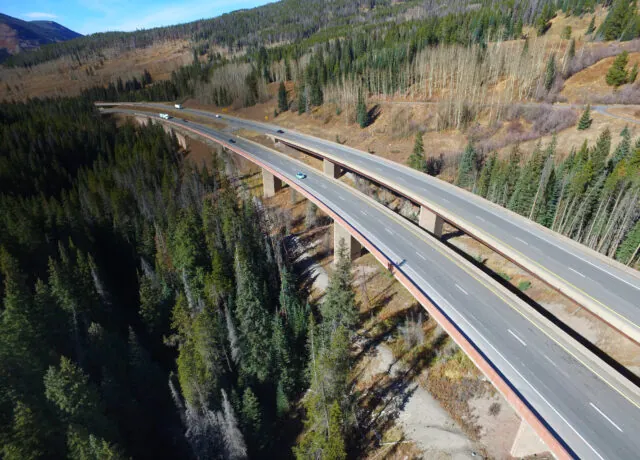
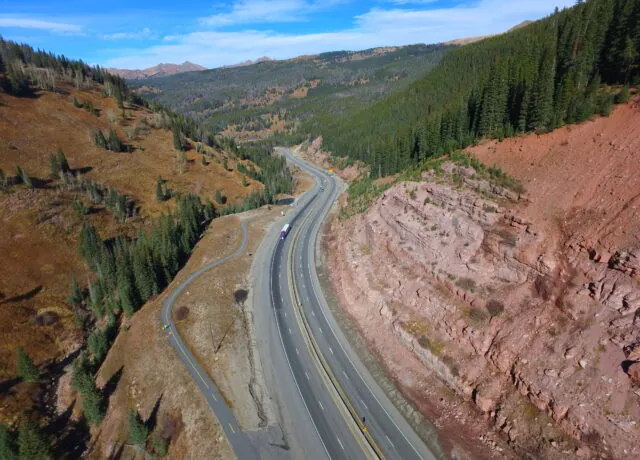
Innovative curved bridge Design
Two new segmental 550-foot-long curved bridges will be built over Polk Creek. The bridges include highly technical curved post tensioned concrete U girders. The abutments and piers required special attention to match the historical aesthetic requirements in this linear historical district.
Client quote:
“RS&H has demonstrated a commitment to excellence for the I-70 West Vail Pass project. My monthly meeting with George Tsiouvaras, the RS&H’s project principal, has furthered our shared vision of continuously improving the project’s technical aspects and overall delivery. Incorporating that real-time feedback has helped CDOT and the RS&H team realize a project that best serves our stakeholders, CDOT and the traveling public.”
– Karen Berdoulay, PE, PMP, Colorado Department of Transportation

